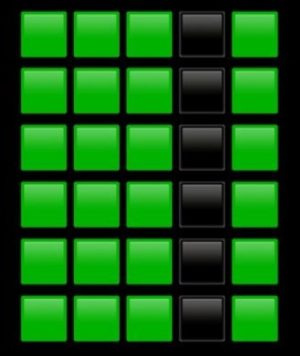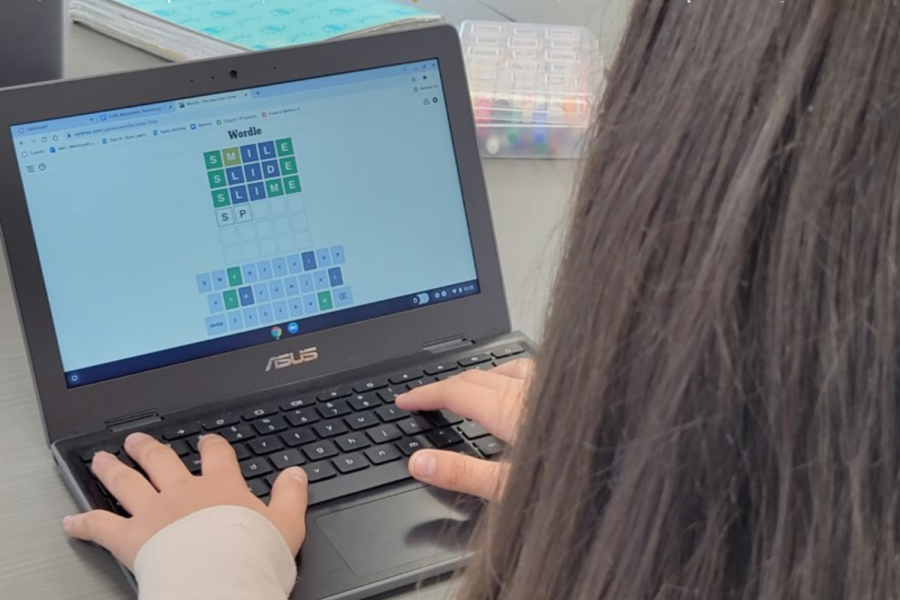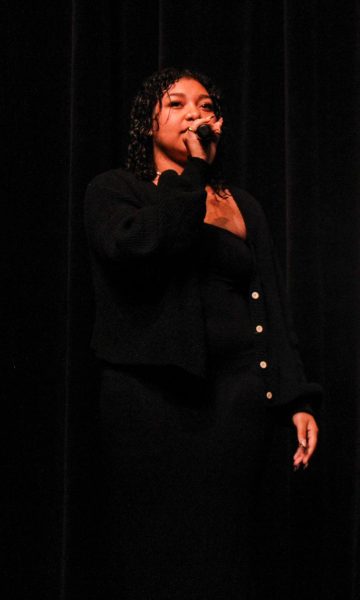Wordle: Doubting your Intelligence
A student plays Wordle online, three attempts away from solving the puzzle.
“Focal, chant, audio, cloak, vivid”
These are just a few of the simple five-letter words that stump thousands of players every day.
Released in October 2021, the daily word game Wordle has over 300,000 people tapping furiously at their phones for that one elusive word.
According to The New York Times, the game was developed by software engineer Josh Wardle for his wife, a lover of word games. What began as a little side project evolved into a worldwide sensation.
The premise of the puzzle is quite simple. Similar to Hangman, the goal is to discover the word by forming other five-letter words. If a letter does not exist in the word, the tile remains black. If a letter exists in the word but in a different place, the tile turns yellow. And if the correct letter is in the correct place, the tile becomes green.
Pretty easy so far…right?
Word by word, letter by letter, tiles of yellow and green appear as pieces of the secret term are revealed.
Suddenly, all the five-letter words in one’s daily vernacular cease to exist, drawing the mind to a blank and the board to a gray.
“Part of what makes it difficult is that you start from nothing,” said junior Precious Ani. “There are no hints, no clues, and then sometimes there are word variations that make it really frustrating.”
Ani also said, “Sometimes you can be stuck on one specific letter, like with ‘hater’ [a previous Wordle term] the word could have been ‘hater,’ ‘later,’ ‘cater,’ there are just so many words it could be.”
Personally, I am guilty of this:

The allure of Wordle exceeds that of a normal word game as it sparks a strong sense of competition and satisfaction.
Not to mention bragging rights.
“I like to play it because I’m competitive, even if it’s just competing with myself, and I know that I can win, so I decided that I will win,” said Ani.
Junior Sofia Vasquez said, “The fact that the game is questioning my intelligence and makes me want to prove how smart I am is what makes Wordle so addicting.”
With Wordle’s historic seven-digit transaction, sold by Wardle to The New York Times, the future of free gameplay and hence overall relevance seems to dissipate. Nonetheless, Wordle’s impact will never be forgotten.

Nimrah Khan is a senior at RCHS, and this is her third year in journalism. She is the editor-in-chief of the school newspaper, The Cat’s Eye. Her favorite...






